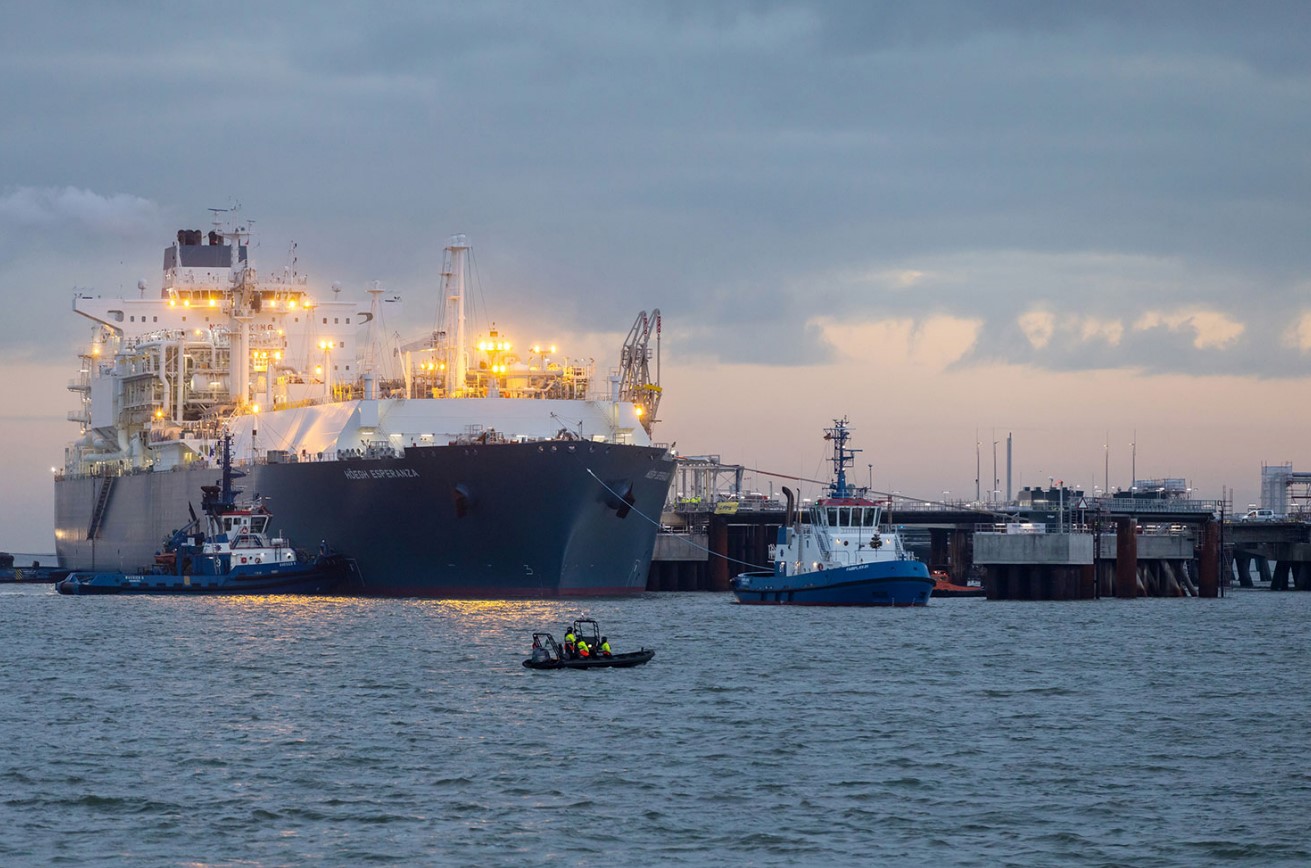German energy firm Uniper and its partners have officially launched Germany’s first LNG import facility in Wilhelmshaven following the arrival of the 170,000-cbm FSRU Hoegh Esperanza on Thursday.
Uniper operates the facility on behalf of the German government, Niedersachsen Ports performed the works on the port infrastructure, such as the recently completed jetty, while OGE was responsible for the 26 kilometers long connecting pipeline.
The partners said in a joint statement on Saturday that the FSRU-based facility had officially been commissioned for service.
German Chancellor Olaf Scholz, German Minister for Economic Affairs Robert Habeck, Klaus-Dieter Maubach, Uniper’s CEO, and others attended the official opening.
“Even before Christmas, LNG will be regasified and conveyed via the newly created Wilhelmshavener Anbindungsleitung (Wilhelmshaven Connector Pipeline/WAL) into the German long-distance gas grid,” the statement said.
Hoegh Esperanza
Hoegh LNG said on Thursday it signed a binding 10-year time charter contract with the German government for the FSRU Hoegh Esperanza.
The FSRU will be operated by Uniper acting as agent on behalf of the German Federal Ministry for Economic Affairs and Climate Action.
Prior to arriving in Wilhelmshaven, the FSRU took a cargo in Spain at the Saggas regasification plant in Sagunto operated by Enagas.
Uniper said the shipment of 165,000 cbm of LNG is enough to supply around 50-80,000 German households for a year.
In future, Hoegh Esperanza would feed at least five bcm of natural gas into the German gas grid each year.
That is around six percent of Germany’s gas demand, and would thus replace around eleven percent of Germany’s gas imports from Russia, Uniper said.
Uniper expects first LNG tanker to dock at the FSRU in early January.
First of six FSRU-based terminals
The Wilhelmshaven facility is the first of six FSRU-based terminal in Germany that are expected to go online by the end of 2023 as the country looks to replace Russian pipeline gas supplies.
The government backed the charter of five FSRUs while Deutsche ReGas is developing the first private FSRU-based facility in Lubmin.
German energy firm RWE is also expecting to receive the first commissioning cargo at the Elbhafen FSRU-based LNG import terminal in Brunsbuettel in January. This terminal will also feature Hoegh’s vessel, Hoegh Gannet.
In addition, Deutsche ReGas on Friday moved the the 2009-built 145,000-cbm FSRU Neptune from the Mukran Port on the island of Ruegen to Lubmin.
However, the company is still awaiting to receive approvals by the local government to launch the facility.
Depending on the approvals, the Lubmin facility would become the second operational terminal in Germany, followed by the Brunsbuettel facility.
The three other FSRU-terminals are expected to go online later in 2023.

